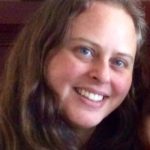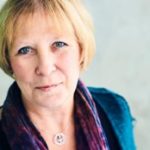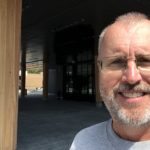Uncolonizing Democratic Processes
Saturday, February 4, 2023 – 9:30 am PT | 10:30 am MT | 11:30 am CT | 12:30 pm ET |1:30 AT (5.5 hours with 3x 15 min breaks)
Congregations that choose to take up the challenge of actively welcoming greater diversity may need to reconsider some of their long-term practices. The ways we organize and make community decisions are no exception. Some of our congregations are exploring new approaches. In this workshop, we will explore a few ways they are working to uncolonize their democratic processes. Participants will be able to choose two of the four streams being offered.
Workshop Stream Descriptions:

-
- “When “Fair Processes” Mask Colonial Thinking: Lifting the Veil on Robert’s Rules and Silencing
Jessica Asch
Part of the work of decolonization requires settlers to identify the gaps in our own understandings of the world. In application, even treasured principles of governance, such as fairness in process, can mask colonial thinking and preclude important conversations about how to rebuild relationships and decision-making processes. Using an example, this interactive workshop will unpack the lost opportunities and harms when we don’t challenge our thinking around law and legal processes, and provide space for people to reflect on approaches for moving forward.
Jessica Asch grew up in Treaty 6 Territory, where her parents settled in the 1970s, and has lived as an uninvited guest in unceded lək̓ʷəŋən Territory for 25 years. Jessica has worked as a lawyer, researcher, teacher, community organizer and policy analyst in the public, non-profit and private sectors. She was called to the B.C. bar in 2010 and practiced state law before joining the Indigenous Law Research Unit (ILRU) in 2013. She became ILRU’s Research Director in 2015, overseeing its collaborative, community-based research and public legal education projects, and Co-Research Director alongside Tara Williamson in 2021. Jessica has led and supervised Indigenous law revitalization projects on questions relating to citizenship, gender, human rights, families, governance, dispute resolution, child welfare, lands, resources and water, and has presented and published on this work. She also facilitates workshops, teaches, and presents on ILRU’s work and methods to law students, legal professionals, and the broader public.
- “When “Fair Processes” Mask Colonial Thinking: Lifting the Veil on Robert’s Rules and Silencing
-
- The Tragic Gap – Reimagining Governance
Rev. Samaya Oakley and Diana Smith
 Our governance systems have been structured and rooted in our colonial mindset – rational, fixed, and linear. We’re at a moment in history that calls us to transform – but how? There’s a desire and a yearning to reimagine how we move through the tragic gap as congregations, and as Canadian Unitarian Universalists.Join Diana Smith and Rev. Samaya Oakley as we explore what it means to adapt our congregational governance systems to emerging possibilities. We’ll explore systemic change, what it means, and provide you with insights, grounded practical examples, and some conversations to explore with your congregation. We are the change we’ve been waiting for.
Our governance systems have been structured and rooted in our colonial mindset – rational, fixed, and linear. We’re at a moment in history that calls us to transform – but how? There’s a desire and a yearning to reimagine how we move through the tragic gap as congregations, and as Canadian Unitarian Universalists.Join Diana Smith and Rev. Samaya Oakley as we explore what it means to adapt our congregational governance systems to emerging possibilities. We’ll explore systemic change, what it means, and provide you with insights, grounded practical examples, and some conversations to explore with your congregation. We are the change we’ve been waiting for.
We’ll explore systemic change, what it means, and how you might approach it in your congregation.
- The Tragic Gap – Reimagining Governance
-
- Discovering Sociocracy: The Meeting and Governance Model UUs Are Looking For
Aukje Byker and Ben Wolfe
What if we could transform the way we gather as congregations and committees to discuss and decide what matters?
What if we could begin from love and possibility, give everyone in the room a voice, leave meetings more connected, and widen our circles of leadership?
The presenters will introduce you to Sociocracy — the governance model Peterborough has been experimenting with over the last three years — and the community dialogue process that led them to discover and choose it.
Sociocracy makes meetings more connecting, collaborative, inclusive and efficient. Imagine leaving Board meetings saying you feel more energized than when you arrived.
- Discovering Sociocracy: The Meeting and Governance Model UUs Are Looking For
-
- Consensus Decision-Making
Peter Scales
 Twenty years ago while the congregation was rent by divergent visions of how to get along, one of the members of Capital Unitarian Universalist Congregation (Victoria BC) was doing a master’s degree in Conflict Studies. She brought forward a model of consensus that Capital has been using with great effect ever since. By giving the voting members four ways of saying ‘yes’, the Gradients of Agreement model promotes smarter decisions and greater openness.
Twenty years ago while the congregation was rent by divergent visions of how to get along, one of the members of Capital Unitarian Universalist Congregation (Victoria BC) was doing a master’s degree in Conflict Studies. She brought forward a model of consensus that Capital has been using with great effect ever since. By giving the voting members four ways of saying ‘yes’, the Gradients of Agreement model promotes smarter decisions and greater openness.
- Consensus Decision-Making
Schedule for the Day:
-
- Shared Session 60 min starting at: 9:30|10:30|11:30|12:30
- Break 15 min
- Breakout Session A 90 min starting at: 10:45|11:45|12:45|1:45
- Break 15 min
- Breakout Session B 90 min starting at: 12:30|1:30|2:30|3:30
- Break – 15 min
- Shared Session 45 min starting at: 2:15|3:15|4:15|5:15
